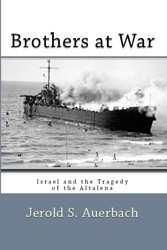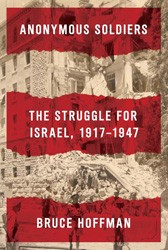By
– May 7, 2012
The editors of this documentary history of the Zionist settlement in Palestine (Yishuv), from its beginnings in 1882, have provided the reader with sources that have not previously been published in the English-speaking world. This source book includes sixty-two documents which cover the social, economic, and cultural aspects of the manner in which the Yishuv moved from an array of settlements to statehood.
In 1880, the Jewish community in Palestine numbered some 20,000 Orthodox Jews. Within sixty-five years the Yishuv had been transformed into a secular proto-state, with well developed political, military, and economic institutions, that had grown to around 600,00 inhabitants. Many of the documents include those written by leaders of the Zionist labor movement, the major political force during the formative decades prior to the founding of the State of Israel. The editors have not neglected the Revisionist movement and other forms of right-wing Zionism that challenged the dominance of the Zionist labor establishment. Sources also include the views of Orthodox Zionists as well as ultra-Orthodox anti-Zionists. Finally, the editors have included, where possible, the voices of ordinary Jews as well as documents dealing with the origins of the Arab-Israeli conflict, often cited before in scholarly literature but never reproduced in full.
In 1880, the Jewish community in Palestine numbered some 20,000 Orthodox Jews. Within sixty-five years the Yishuv had been transformed into a secular proto-state, with well developed political, military, and economic institutions, that had grown to around 600,00 inhabitants. Many of the documents include those written by leaders of the Zionist labor movement, the major political force during the formative decades prior to the founding of the State of Israel. The editors have not neglected the Revisionist movement and other forms of right-wing Zionism that challenged the dominance of the Zionist labor establishment. Sources also include the views of Orthodox Zionists as well as ultra-Orthodox anti-Zionists. Finally, the editors have included, where possible, the voices of ordinary Jews as well as documents dealing with the origins of the Arab-Israeli conflict, often cited before in scholarly literature but never reproduced in full.
Each section of the volume is introduced by background material for the documents that follow. The intention of the editors of this indispensable collection of documents is for use as a classroom resource that might accompany a textbook, or as a stand alone source. I recommend this volume to faculty who teach university and graduate courses dealing with the history of Israel as well as the Zionist movement.
Jack Fischel is professor emeritus of history at Millersville University, Millersville, PA and author of The Holocaust (Greenwood Press) and Historical Dictionary of the Holocaust (Rowman and Littlefield).





